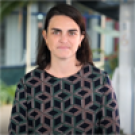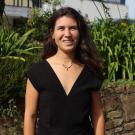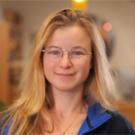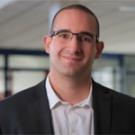
Preparations for the BDE campaign
How did your initial team come together?
We started out as a small group of people who had met as freshers, in the WEI* bungalows in particular. Other students heard about the Students’ Union and wanted to get involved too. Although our friendship is ultimately what brought the team together, we all shared the ambition to develop a project based on common values. The officers making up our Students’ Union team have very different personalities – sporty, socialite or more reserved – but what unite us are our common visions and values, not least “combating all forms of discrimination”.
* Freshers’ weekend
What were your main motivations? What did you focus on during your campaign?
Our aim during the campaign was really to show our cohesion and highlight our commitment to helping everyone to fit in and find their place. We were the list with the smallest budget/cash flow, and yet we managed to run a brilliant campaign. We noticed that some of the school’s students tend not to get involved, so we took it to heart to broaden the activities on offer so that they really do appeal to as many students as possible.
The campaign
The campaign this year was distinctive in that you found yourselves tied with another team in the second round. A 3rd round was therefore held. What was this period like for you?
We’re lucky to have quite an original team of Students’ Union officers, all with very different personalities. The team is very close-knit, and I think this tie re-energized us and gave us a motivation boost. Students liked the fact that we’re so diverse. Those who don’t usually speak out did so through their votes. We truly took it to heart to show that each and every person matters. Our win is a big deal for us and we are taking it seriously.
What were the other highlights of the campaign?
One of the campaign’s main highlights was the presidents’ debate. Two days before the final votes, for two-and-a-quarter hours, the three BDE presidential candidates debated and answered students’ questions in front of over 200 students.
After answering all sorts of questions about the history of ENSTA Bretagne and its governance, the presidential candidates then took questions live from the floor. This is an eagerly awaited moment for many students. On the one hand, it is an opportunity to review the campaigns and, on the other, it can prove decisive for students who are still unsure.
The team
How is the new student team organized?
There are 29 of us, split across 11 networks:
PANDΩRS (Anti-Discrimination, Homophobia, Racism & Sexism); BDA: the Arts’ Union; integration; security; communications; BDS: the Sports’ Union; BDG: the Water Sports’ Union; international; sustainability; cookery; miscellaneous: organization of debates and blood donation sessions.
The PANDΩRS network (for Anti-Discrimination, Homophobia, Racism and Sexism) is the big innovation this year. This network is committed to combating all forms of discrimination at the school, as well as to conducting prevention initiatives. (Launch of programs for giving up smoking or alcohol for example). We would also like to make a contribution to the BAR (Brigade Anti Relou, which aims to raise awareness of harassment and discrimination of all kinds), by increasing the forms of assistance and advice/support channels available.
The sustainability network is also new this year: Titouan is the “head gardener” if you like. The aim of this group, open to all, is to bring students together around the gardening theme. A vegetable garden is going to be planted on campus next to the student residence.
The projects
What new plans do you have?
We would like to develop the choice of cultural activities at the school via partnerships with local stakeholders, such as “Le Quartz” concert hall or Liberté cinema.
We’re currently looking into several possibilities. Le Quartz is going to start by advising us about the plays we could go and see, and we will then be able to get tickets at a special discount.
What are the other big projects in the pipeline?
We would like to devote efforts to helping students on the co-operative engineering program (FIPA) feel welcome and part of the school. They are a small cohort you see, and not permanently on campus because of their co-operative status.
We have therefore appointed a FIPA correspondent who is in charge of organizing the “FIPA Cup”, a sports tournament exclusively for students on the co-operative engineering program. The aim of this competition is to give these students an opportunity to bond further and to raise their profile among other students.
The other project by which we are setting store involves promoting such awareness campaigns as Breast Cancer Awareness Month (in October) and the charity telethon event. We are considering developing this type of event within the school.


















